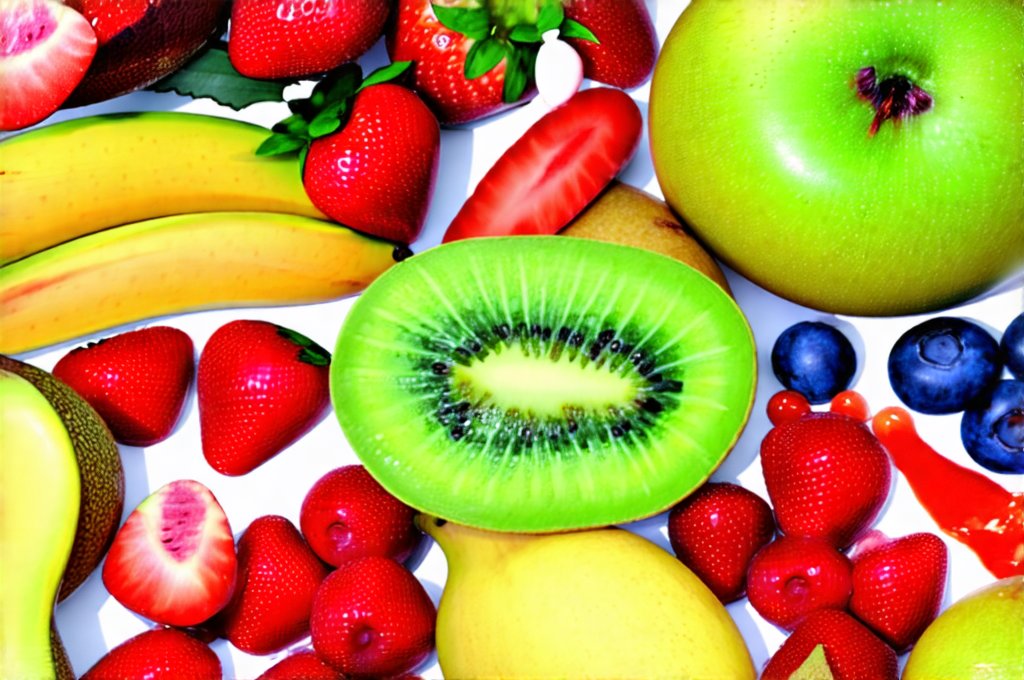Cholesterol management is a cornerstone of cardiovascular health, impacting overall wellbeing for millions. While often discussed in terms of medication and lifestyle changes, dietary choices play an incredibly significant role. Many people are surprised to learn how powerfully food can influence their cholesterol levels – not just by reducing ‘bad’ LDL cholesterol, but also by boosting ‘good’ HDL cholesterol and supporting overall heart function. Focusing on incorporating specific fruits into your diet is a delicious and effective strategy for proactively managing this important health marker. It’s about embracing natural solutions alongside any necessary medical interventions, recognizing that small consistent changes can yield substantial long-term benefits.
The key to understanding how fruit helps isn’t just about the absence of cholesterol (fruits are naturally cholesterol-free). Instead, it lies within their rich composition of soluble fiber, antioxidants, and beneficial plant compounds called phytochemicals. Soluble fiber, in particular, is a champion when it comes to lowering LDL cholesterol because it binds with cholesterol in the digestive system, preventing its absorption into the bloodstream. Antioxidants combat oxidative stress which contributes to the formation of plaque in arteries. And phytochemicals offer an array of protective effects for heart health beyond just cholesterol levels. This article explores some of the top fruits you can incorporate into your diet to support healthy cholesterol management, and how they work their magic.
The Powerhouse Fruits: Apples & Citrus
Apples and citrus fruits like oranges, grapefruits, and lemons consistently rank high on lists of heart-healthy foods. Their effectiveness isn’t just anecdotal; it’s backed by scientific research demonstrating the positive impact of their unique nutritional profiles. A major contributor is pectin, a type of soluble fiber abundant in apples. Pectin aids in reducing LDL cholesterol levels by essentially trapping cholesterol in the digestive tract, leading to its excretion from the body rather than absorption. Citrus fruits, while containing different types of fiber, also offer significant benefits through their high vitamin C content and flavonoids.
The beauty of these fruits is their versatility. They’re easily incorporated into daily routines – a quick apple for a snack, orange juice with breakfast (in moderation due to sugar content), or lemon squeezed into water. However, it’s important to consume the whole fruit rather than just the juice whenever possible, as much of the fiber is lost during juicing. This ensures you’re reaping the full cholesterol-lowering benefits and also obtaining essential vitamins and minerals. Regularly consuming these fruits isn’t a quick fix but a consistent dietary habit that contributes significantly to long-term heart health.
Beyond pectin and vitamin C, citrus fruits contain hesperidin and naringenin, two flavonoids associated with improved blood vessel function and reduced inflammation – factors directly linked to cholesterol management and cardiovascular disease prevention. These compounds work synergistically with the fiber content to offer a comprehensive approach to supporting healthy cholesterol levels and protecting heart health. Consider incorporating a variety of citrus fruits into your diet for maximum benefit, experimenting with different flavors and preparations.
Berries: Small Packages, Big Impact
Berries – including blueberries, strawberries, raspberries, and cranberries – are nutritional powerhouses packed with antioxidants, fiber, and vitamins. They’re often celebrated for their role in fighting inflammation, a key contributor to heart disease and high cholesterol. The anthocyanins found in berries, responsible for their vibrant colors, are potent antioxidants that protect LDL cholesterol from oxidation. Oxidized LDL is particularly harmful as it’s more likely to contribute to plaque buildup in arteries.
- Berries offer a delicious way to add fiber to your diet, contributing to the lowering of LDL cholesterol.
- Their low glycemic index means they won’t cause rapid spikes in blood sugar, which can negatively impact lipid profiles.
- The variety allows for consistent consumption without palate fatigue.
Adding berries to your breakfast cereal, yogurt, or smoothie is a simple and effective way to enjoy their health benefits. Frozen berries are just as nutritious as fresh, making them a convenient option year-round. In fact, freezing can even enhance the antioxidant properties of some berries. Remember that portion control is still important, even with healthy foods like berries, due to their natural sugar content.
Avocado: More Than Just Toast Topping
Avocados often get attention for their creamy texture and versatility in recipes, but they deserve recognition for their positive impact on cholesterol levels too. Unlike most fruits which are high in carbohydrates, avocados are rich in monounsaturated fats. These “healthy” fats don’t raise LDL cholesterol and can actually help to increase HDL (“good”) cholesterol, offering a balanced approach to lipid management.
Avocados also contain significant amounts of soluble fiber, further contributing to their cholesterol-lowering potential. Incorporating avocado into your diet doesn’t have to be complex – add slices to salads, spread on whole-wheat toast, or use it as a creamy base for dips and sauces. However, due to their calorie density, moderation is key. A quarter to half an avocado per serving is generally recommended.
Avocados also provide essential nutrients like potassium, which helps regulate blood pressure – another crucial factor in cardiovascular health. Combining avocado with other heart-healthy foods like whole grains and lean protein creates a powerful synergy for supporting overall wellbeing. The versatility of this fruit allows for creative and enjoyable integration into your daily meals, making it an easy addition to a cholesterol-conscious diet.
It’s important to remember that dietary changes are most effective when combined with other healthy lifestyle habits. Regular physical activity, stress management techniques, and avoiding smoking all play significant roles in maintaining optimal cholesterol levels and overall heart health. The fruits highlighted here can be valuable allies on your journey to better cardiovascular wellbeing, but they are just one piece of the puzzle. Consult with a healthcare professional or registered dietitian for personalized advice tailored to your individual needs and medical history.




